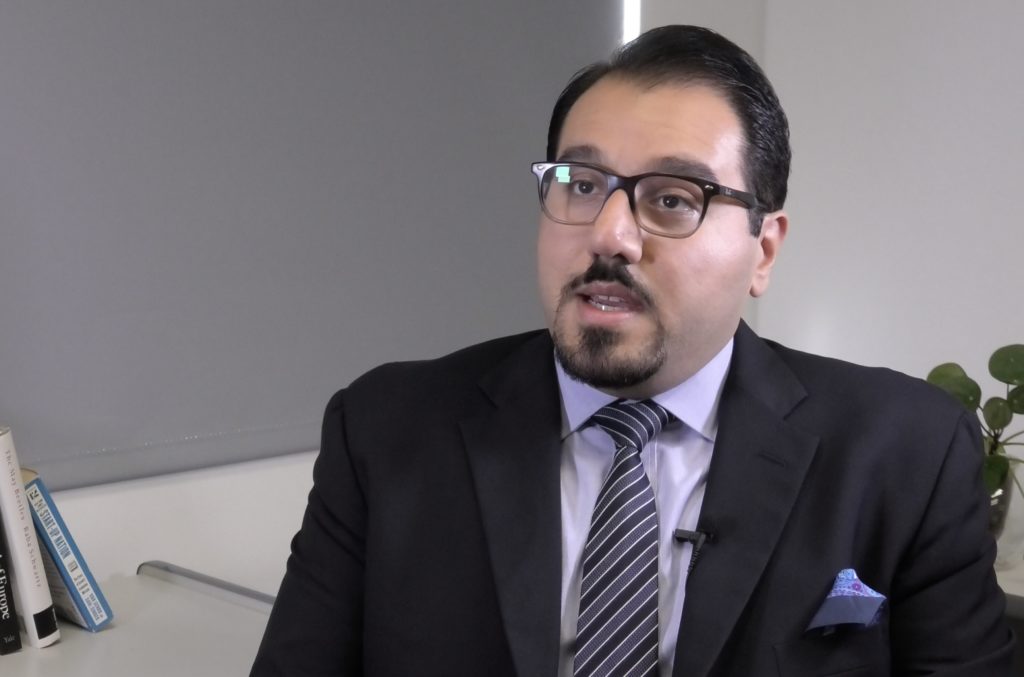FRESH AIR
Behnam Ben Taleblu interviewed on ABC Radio “PM” about Dr Kylie Moore-Gilbert [Transcript]
January 23, 2020

Recent AIJAC guest and Foundation for Defense of Democracies senior fellow Behnam Ben Taleblu discusses the case of British-Australian academic Dr Kylie Moore-Gilbert – held in Iran’s notorious Evin prison since September 2018 on trumped-up charges of espionage – and how Australia should respond to this and other cases of Iranian hostage-taking.
To listen to the full interview, click here
LINDA MOTTRAM: Well, another vocal Iran commentator agrees.
Behnam Ben Taleblu is a senior fellow with the Foundation for the Defense of Democracies in Washington DC, which takes a hard line on Iran and other key Middle East questions.
I asked him first what value he thinks Kylie Moore-Gilbert would have to the Iranian regime.
BEHNAM BEN TALEBLU: Authorities in the Islamic Republic have sought to use either dual nationals, Iranian-hyphenated individuals or foreign nationals as pawns in their game of strategic competition with a foreign country.
Iran has long used hostage-taking — make no mistake; this is hostage-taking — as part and parcel of its foreign policy.
LINDA MOTTRAM: Why would they have chosen her in particular? I mean, she’s an academic, an expert in Islamic studies; do we know anything about the logic of her targeting in the first place?
BEHNAM BEN TALEBLU: Well, looking at that background, I’m glad you mentioned both the academic portion — basically a non-profit career, an educational career — and the Islamic studies component — knowledge of the faith, knowledge of the region — these are people that Iran has targeted before.
In particular, it’s assumed that Miss — or Dr Gilbert-Moore (sic) I should say, knows Arabic, and it’s assumed she knows a little bit of Farsi (Persian) because what’s reported about her is that she has apologised, according to The Guardian, for her poor Farsi, using these letters to even be overtly polite to her captors in Iran.
So, those backgrounds raise suspicion, but in Iran and around the rest of the world, we know that that type of background is something to be commended.
It’s not a national security background; it’s simply an academic background. But Iran doesn’t see it that way.
LINDA MOTTRAM: So what might be the trade-off for Kylie Moore-Gilbert’s freedom, do you think?
BEHNAM BEN TALEBLU: Well, it’s important not to see it as a trade-off, because if one trade-off can lead to another, one bad deal could beget a worse deal, and this is not the sort of predicate that Australia should be looking to engage in with Iran.
Now, unfortunately you can say that Washington, or even some Western countries in the past, have had something of a quid pro quo, if you can use that phrase now, for a prisoner swap or even of a delay in prisoner exchanges, for political purposes.
When you look at the history of West Iran relations — France, Lebanese Hezbollah and Iran — there were hostage phasings and takings that played into the national politics of Lebanon, national politics of Iran, national politics of France.
And I think Australia should stay away from this.
LINDA MOTTRAM: And so, what more, then, can the Australian Government do? The Australian Foreign Minister says she recently raised Kylie Moore-Gilbert’s case with her Iranian counterpart, but he would not be moved.
Today, Jason Rezaian — the Washington Post reporter who was himself held for more than 500 days with his wife in Iran before being released — he says Australia’s not doing enough.
So what more could be done?
BEHNAM BEN TALEBLU: Well, I’m glad you mentioned the case of someone like Jason Rezaian, because you know, having former hostages, former detainees, echo the plight of current detainees, current hostages, something that can happen — it could be something organised by the Australian Government, could be something organised by the Australian-Iranian diaspora community.
It could simply be another vector of pressure for the Foreign Ministry in Australia to bring to bear on Iran, to cite the conditions on which previous people were released and say, “Do our citizens not deserve the same, if not more?”
So, there’s more pressure, obviously that could be a lot to bear, but more publicity. That’s really the key part. There seems to be a tendency when some countries have hostages or prisoners in Iran to downplay, to keep it out of the cycle. You’ve seen this in the past with Australia, of course.
In fact, I think more publicity constantly reminding and naming and shaming the Iranian authorities responsible for these detentions, these gross human rights violations. That, of course, I think can play a role in expediting the release for the likes of Moore-Gilbert, as well as anyone else.
LINDA MOTTRAM: Behnam Ben Taleblu, thank you very much for speaking with us.
BEHNAM BEN TALEBLU: It’s my pleasure, thank you.
LINDA MOTTRAM: Behnam Ben Taleblu is senior fellow at the Washington-based Foundation for the Defense of Democracies.
And in a statement, a foreign affairs spokesman in Canberra says Dr Moore-Gilbert’s case is a very high priority, that the minister has raised the case with her Iranian counterpart multiple times.
It says, “We are doing everything possible in relation to the conditions of her imprisonment,” and it says, “We continue to believe the best way to secure a successful outcome is through diplomatic channels, not through the media.”
Tags: Iran
RELATED ARTICLES

He survived Bondi. Now he’s fighting back: Arsen Ostrovsky addresses AIPAC conference

US Middle East strategy amid regional instability: Dana Stroul at the Sydney Institute





















